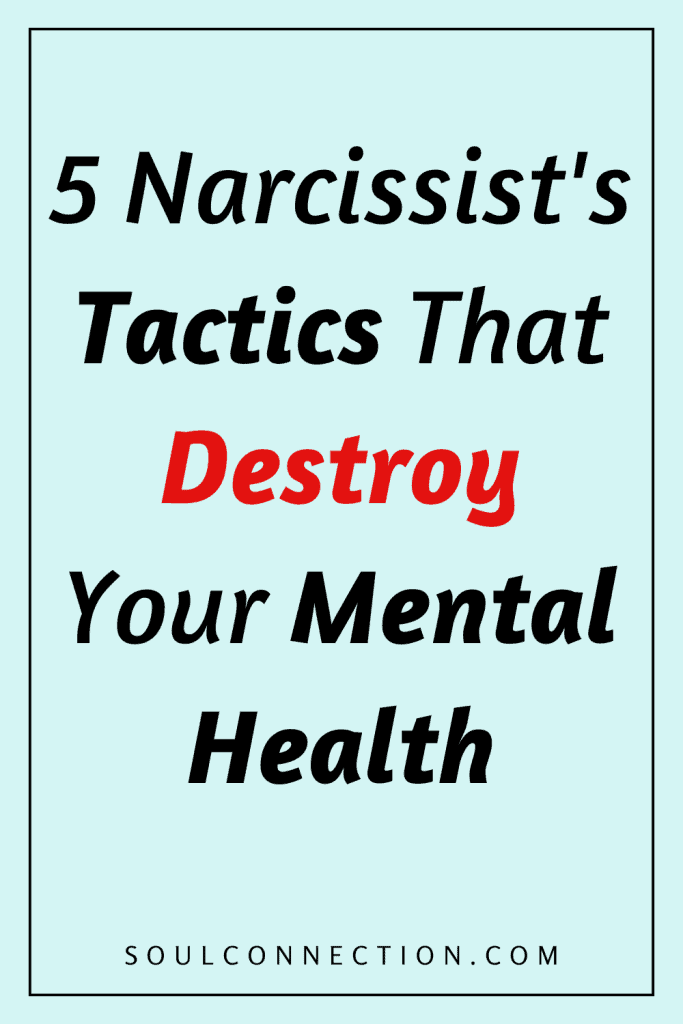Ever feel like you’re losing your mind, but it’s not because you left your keys in the fridge or started addressing texts to your dog? Sometimes, it’s because someone is quietly (or not-so-quietly) running circles around your sense of reality.
Welcome to the wild ride of narcissistic manipulation: where up is down, right is wrong, and somehow, everything is your fault.
Brace yourself. Here are five classic narcissist tactics that can leave even the most grounded among us questioning, well, just about everything.
1. Gaslighting
If you’ve ever second-guessed your memories, sanity, or, heaven help us, the location of your own shoes—congratulations, you may have been gaslit. Narcissists adore this move. It’s psychological warfare, dressed up as concern or confusion.
You might hear: “I never said that,” “You’re imagining things,” or the ever-popular, “Are you okay? You’re acting really sensitive.” This isn’t just casual forgetfulness; it’s repeated invalidation, until you’re not sure which way is up.
The impact? You start mistrusting your own mind. Anxiety creeps in, and self-doubt takes over. Suddenly, you’re apologizing for things you didn’t do, for feelings you have every right to feel.
What can actually help: Start documenting things—dates, texts, events (private journal, not a billboard, please). Reach out to friends who’ll remind you what’s real.
Most importantly, start believing yourself again, even if your inner critic sounds suspiciously like your narcissistic ex.
2. Love Bombing and Withholding
Narcissists hand out affection like it’s Black Friday: massive deals, for a limited time only. At first, you’re swept off your feet by charm, attention, and grand gestures. It’s intoxicating—until, suddenly, it’s all gone.
Cue the silent treatment, cold shoulder, or even outright disdain. The catch? Your brain, now addicted to the dopamine rush of attention, starts working overtime to “earn” another hit.
Welcome to emotional withdrawal, sponsored by your local narcissist.
The seesaw of affection and rejection chips away at self-worth. You’ll find yourself tiptoeing around, desperate to please, convinced you’ve done something wrong. (Spoiler: you haven’t.)
How to break free: Recognize the pattern. Healthy love doesn’t require performing tricks. Create boundaries—big, glaring, neon ones.
If you’re not getting consistent care and respect, you’re not actually in a relationship; you’re in a psychological carnival game.
3. Triangulation
If you adore a bit of drama (and honestly, who doesn’t?), narcissists are more than happy to provide. Triangulation is their way of keeping you off-balance, jealous, and always striving for approval.
This usually looks like: “Well, my ex never acted this way,” or “Everyone at work agrees with me.” Sometimes they’ll even drag in friends or family: “My sister thinks you’re overreacting.”
The goal? Set you at odds with others, so you’ll focus on winning back their affection and lose trust in your own support system.
It’s isolating and breeds insecurity. Suddenly, you’re competing in a relationship Olympics you never signed up for.
What actually works: Refuse to play. If someone brings up a third party or comparison, call it out and re-center the conversation.
Reconnect with your friends and loved ones (the real ones, not the imaginary Greek chorus the narcissist keeps referencing). Don’t let yourself be maneuvered into a one-person competition.
4. Blame Shifting and Playing the Victim
Narcissists have mastered the art of the disappearing act—when it comes to accountability, that is. Fault? Never theirs. If you spot a narcissist admitting they were wrong, you might want to buy a lottery ticket.
This shows up as: “If you hadn’t…,” “You made me do this,” or the infuriating, “I guess I’m just a terrible partner, then.” (Said while you’re comforting them. Yes, really.)
They twist your complaints into attacks and pile on just enough guilt to get you apologizing for even bringing up issues.
Over time, this erodes your ability to advocate for yourself. You become a master apologizer for things that aren’t yours to own.
Try this approach: Pause before responding. Are you about to apologize for something that isn’t your responsibility? Stop.
Healthy relationships have room for tough conversations, without one person always playing the martyr. Practice standing your ground, even if it feels awkward at first. (It will.)
5. Smear Campaigns and Reputation Sabotage
If all else fails, narcissists go scorched earth. When you finally set boundaries or try to break free, prepare for a sudden interest in your “flaws” from mutual friends, colleagues, and family.
Congratulations! Your worst moments (or total fabrications) are now trending in the rumor mill, courtesy of your narcissist’s PR campaign.
At best, this makes you wary of opening up to others. At worst, you might lose friends who buy into the drama. The real kicker? Isolation makes you more vulnerable to further manipulation.
Resist the urge to defend yourself to everyone. Trusted friends will see through the act—give them time. If someone asks, keep it factual and brief.
Document anything truly damaging, especially if you share children, property, or social circles. And if you need to, seek out support from a counselor to process the fallout.
Rebuilding Your Sanity After Narcissistic Tactics
Anyone who’s felt the full force of these tactics knows the soul-twisting exhaustion they bring. Trying to keep a narcissist happy is like filling a bottomless pit with thimbles—heroic effort, zero payoff.
Healing starts with recognizing these mind games for what they are: manipulations, not reflections of your worth or reality. Reconnect with people who have your back.
Let yourself feel the anger, sadness, and relief—yes, relief—that come from seeing the truth.
Boundaries are your new best mate. Therapy isn’t just for “broken” people—it’s a life raft for anyone who’s survived a relationship like this.
Journaling, exercise, and a dash of self-compassion will take you further than any apology tour ever could.
If you’re reading this and seeing your own life in these pages, know you’re not alone, you’re not crazy, and you definitely deserve better. The mental whiplash stops here.


